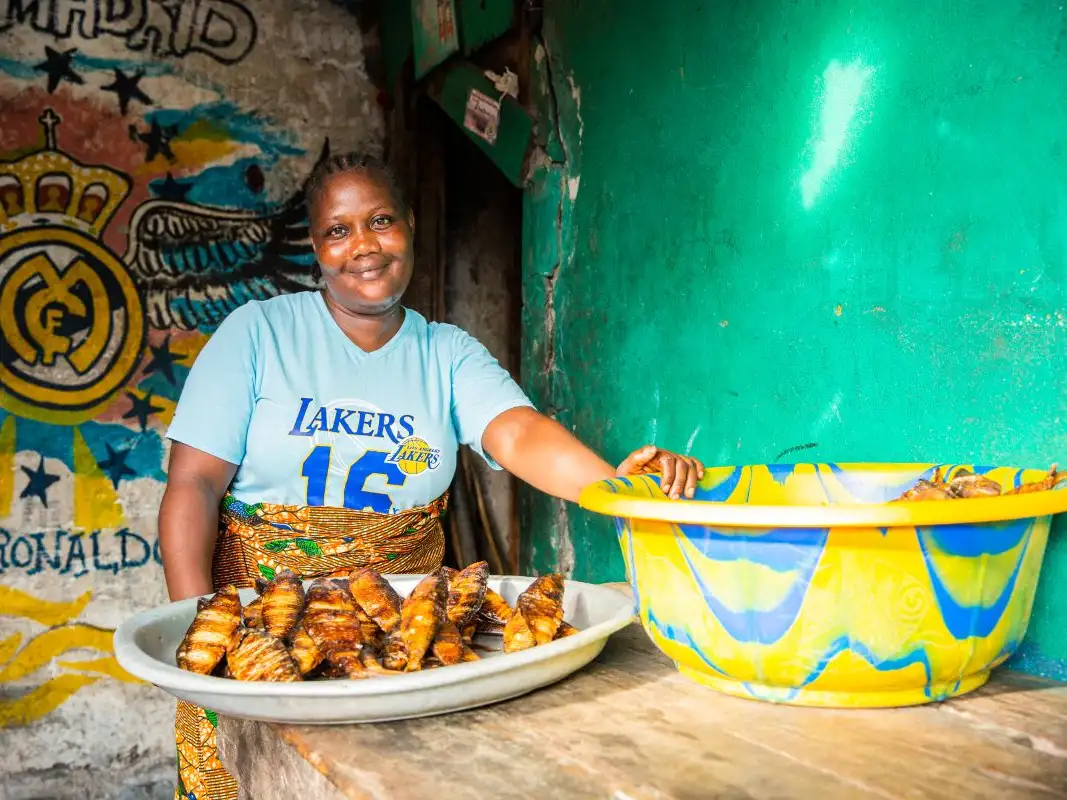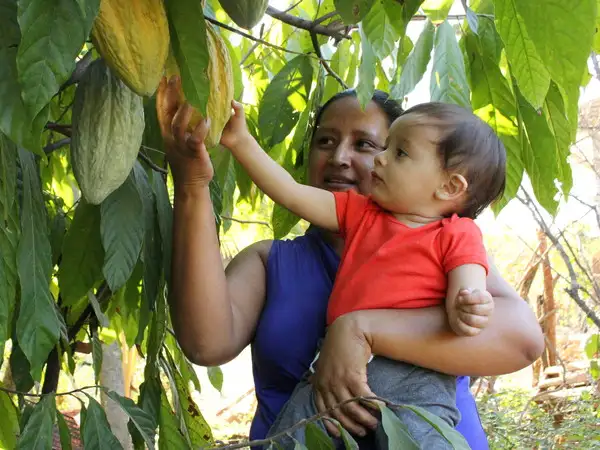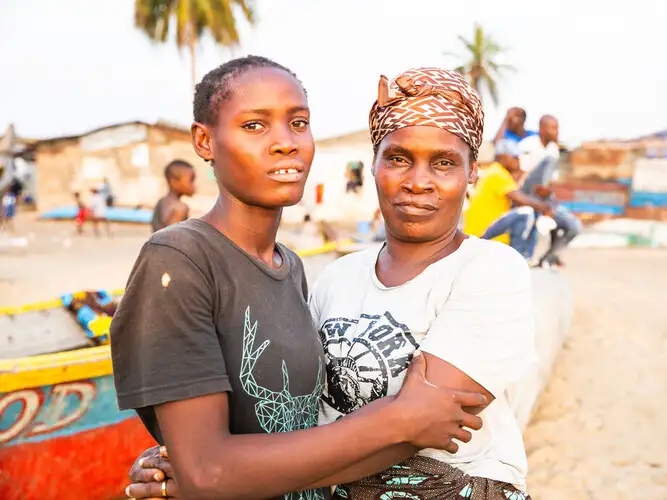

A hardworking fishmonger in Liberia who has been supported by CAFOD's fisheries project
Liberia is ranked 175 (out of 189 countries) on the UN’s Human Development Index, with a life expectancy of 64.1 years and average school leaving age of just 9.6. Liberia’s economy is small and undiversified: the major sectors are mining (diamonds, iron ore, rutile, bauxite), fisheries and agriculture.
More than half the workforce is employed in agriculture and fishing industries. Women dominate the selling of agricultural goods and fish at local markets but their work is dependent on a steady and stable climate. Unfortunately, the climate crisis is making already significant gender inequality issues worse.
As with most countries, the COVID-19 pandemic had a big impact on Liberia. But more significant is the country’s historical experience of civil war, the Ebola outbreak, and environmental disasters such as floods and landslides – all throughout the past few decades.
A better world needs all of us. That’s why CAFOD has been working in Liberia since the 1970s to make sure all people have resilient and adaptable livelihoods that work in harmony with the environment, and that communities are fully prepared for future emergencies.
Our impact in 2024
Last year, we directly reached 2,781 people in Liberia.
253 families received cash assistance in response to flooding.
267 smallholder farmers – mostly women – benefited from training on sustainable production of cassava and other crops, as well as better access to local markets to sell their produce.
500 fisherfolk were supported with equipment and training on safety at sea, navigation, hygiene and fish processing, as well as access to village savings and loans.
Why CAFOD works in Liberia
Liberia’s 14-year civil war ended in 2003 but killed over 200,000 people and made a million more people homeless. It also forced thousands of children to become soldiers. All of this has resulted in a legacy of division.
Although Liberia’s economy expanded by 4.7 per cent in 2023, around 28 per cent of Liberia’s 5 million people live below the international poverty line and the country is dependent on foreign aid.
This human crisis is mirrored by environmental crises. Liberia is ranked 20th-worst in the world for degraded land (as a total of land area), where forest coverage is reduced by 15.8 per cent. Natural resources are depleting rapidly. Communities in Liberia are not only at risk from disasters caused by the climate crisis, but they also lack the capacity to respond to emergencies after they have happened.
These issues feed into a system that limits women’s, and other marginalised groups', access to education, financing and business networks, resulting in lower adult literacy levels and little-to-no involvement in decision-making processes.
Poor governance also means many families, particularly in rural areas, have limited access to adequate water and sanitation facilities.
How we’re responding
Together, we can build a better world. Donations from you can make sure that no one in Liberia has their life limited by injustice or poverty – that everyone has the support they need to flourish.
Local partners in Liberia have been working on projects to improve people's livelihoods and food security, and to bring communities together.
Current projects
We have worked with local experts to strengthen safety skills at sea and navigation for fishermen, reducing their risks during stormy weather. We also supported training for fishmongers on hygienic fish handling and preservation, and setting up local savings and loans groups, which is improving job security for women who sell fish at markets.
Farmers have adopted new, more environmentally sustainable ways of planting cassava in increasingly unstable climates. We are seeing an improvement in the production and access to local markets for smallholder farmers, with an expanded knowledge of cassava growing at a community level, as well as an increase in demand and supply of local products – this is having a direct impact on women’s empowerment.
We are running public awareness campaigns and workshops on women’s land rights, supporting communities to resolve land ownership issues together. We are also working with religious and traditional leaders to promote positive beliefs. Already, Catholic bishops are actively engaging with Catholic MPs to raise awareness of the importance of good governance for social justice.
News from Liberia

What we do
CAFOD is the official aid agency for the Catholic Church in England and Wales.
With your help, we reach out to people living in hard-to-reach places, in war zones and those who are discriminated against.


